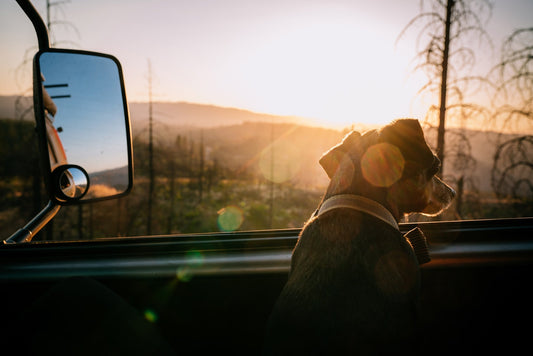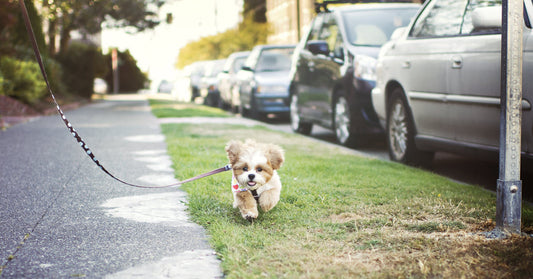Pet parents often admit that their furbabies act like the rest of their family. Talking while they sleep is just another trait dogs share with humans. If you wondering "Why does my dog cry in his sleep?", he’s probably dreaming about events that occurred earlier that day, and it’s nothing to worry about. Dogs go through similar sleep cycles that we do, so if they’re in a deep sleep cycle, it’s unsafe to wake them.
Your Dog’s Sleep Cycle
Dogs go through two sleep cycles: the slow-wave phase, and the REM phase. The initial slow-wave cycle starts when your dog falls asleep and lasts up to 20 minutes. The REM cycle varies from 30 to 45 minutes, depending on your dog’s age and size. Larger breeds dream for five minutes every 45 minutes, while smaller dogs might only dream about a minute every 10 minutes.
During the REM cycle, you might notice your dog is dreaming if they whimper, cry or make other noises in their sleep.
Other Signs Your Dog is in Dreamland
Your pup might also demonstrate some other signs when he is in dreamland, including:
- Irregular breathing
- Whiskers twitching
- Eyes moving behind closed lids
- Body muscles jerking
- Legs trembling and moving
- Paws moving in synchronized motion like he’s chasing a dog in his sleep ;
When It Turns to Nightmares
Dogs have long-term memories just like us, so they often dream about specific events. Generally, they dream about their day or chasing a neighborhood squirrel or cat, but if your dog was abandoned, or traumatized, he is more likely to suffer from nightmares.
Signs of a nightmare include excessive whimpering and crying. If you suspect your dog is having a nightmare, don’t touch him to wake him up or you’ll startle and frighten him and he could accidentally nip at you. Instead, gently, call his name, until he wakes up, and soothe him until he returns back to sleep.
How You Can Help
If your dog has an occasional nightmare and then settles back down, it’s probably nothing to worry about. These prevention tips might help:
- Give him his own sleeping space. Some dogs prefer a crate. Most importantly, give him a soft cozy bed that’s comfortable and easy on his joints.
- Consider using a pressure wrap like the Thunder Shirt if he’s overly anxious.
- Play calming music before it’s his bedtime.
However, if they occur frequently, consider taking your dog to a canine behaviorist to work through his fears so the nightmares stop. It’s possible he had a traumatic experience as a puppy before you adopted him that he revisits in his dreams and is difficult getting past.





